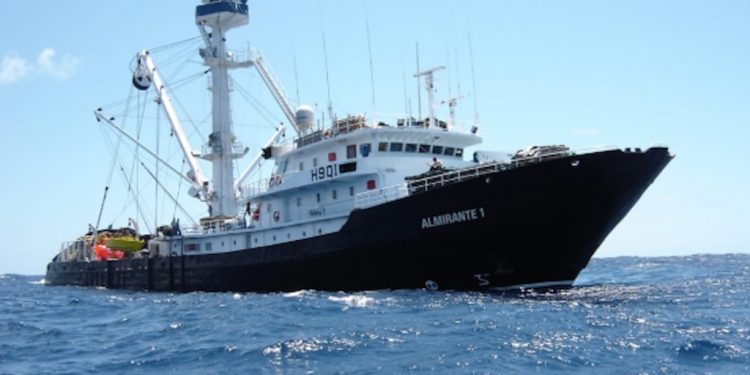Following on from the claims made by French tuna industry federation Orthongel that EU control regulations could put the fleet out of business, Europêche has stated that the same applies to other EU tropical tuna operators – meaning the Spanish tuna purse seine fleet.
According to Europêche, the weight of regulation that applies only to EU vessels and not to those of any other nations, could be enough to bring the operations of EU tuna purse seiners in the Indian and Atlantic Oceans to a halt within a very few years.
At the heart of the problem is the dichotomy under which skippers are required to provide an accurate assessment of the volume and species composition of every shot of tuna, while also being expected to transfer those catches to the freezing tanks as quickly as possible, as is required for vessels operating in waters that are above 30°C.
This presents difficulties as there are just minutes for these assessments to be made of species that are remarkably similar in appearance – and there are significant penalties for getting it wrong.
There are technological solutions are currently being studied to address this problem, but these will take several years to develop.
‘This is why the tropical tuna fleet requests to be able to apply this 10% margin of tolerance not per species but of the whole catch on board. While the European Parliament has adopted a position that takes into account the specifics of fishing operations in the purse seine fishery, the European Commission refuses to bring any flexibility to the rule,’ said Europêche Tuna Group Director Anne-France Mattlet.
‘As a consequence, vessels and skippers are being sanctioned again and again, accumulating points on their licences. This will inevitably lead to the suspension of fishing licences and the immobilisation of EU vessels. Meanwhile, non-EU vessels will keep fishing since they are not subject to the same control, environmental, health and social rules. Some non-EU countries do not even apply the catch limits decided at international level.’
Orthongel commissioned economic analysis specialist Rinzen firm to evaluate the socio-economic consequences of those sanctions. The verdict is unambiguous – if nothing changes, by 2026, the weight of these penalties will make fishing uneconomic, with 1600 French jobs disappearing as a result.
Europêche states that these conclusions apply equally to the Spanish fleet, with the heavy penalties being enforced by the Spanish authorities forcing many vessels to remain tied up for more than two months – jeopardising 2500 Spanish jobs.
‘The situation could be even worse, since the study does not consider the increasing costs of fuel nor the deficit accumulated during COVID. Even during these crisis periods EU tuna vessels kept fishing – without being able to generate a profit – to supply canning factories and maintain employment,’ Anne-France Mattlet said.
‘This is a direct effect of the impossibility for the EU tropical tuna distant water fleet to comply with this rule. The Europêche Tuna Group is lobbying to have a 10% margin of tolerance for the whole catch, at least until technology can solve the complicated sorting of tropical tunas by species.’









